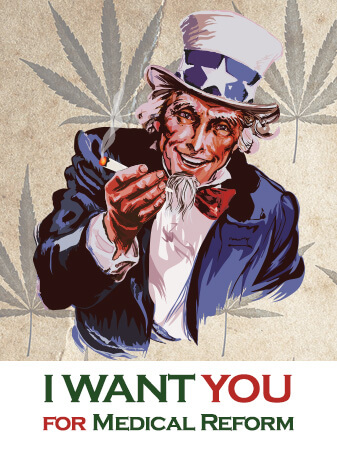Federal Cannabis Laws
The use, sale and possession of cannabis (marijuana) in the United States is still illegal under federal law. However, some states have created exemptions for medical cannabis use, as well as decriminalized non-medical cannabis use. In multiple states the sale and possession of marijuana is legal for both medical and non-medical use. Multiple efforts to reschedule cannabis under the Act have failed, and the United States Supreme Court has ruled in United States v. Oakland Cannabis Buyers' Cooperative and Gonzales v. Raich that the federal government has a right to regulate and criminalize cannabis. Also, if the cannabis is called "medical cannabis" the federal law still has priority.
History

Under federal law, it is illegal to possess, use, buy, sell, or cultivate marijuana, since the Controlled Substances Act of 1970 classifies marijuana as a Schedule I drug, claiming it has a high potential for abuse and has no acceptable medical use. Some states and local governments have established laws attempting to decriminalize cannabis, which has reduced the number of "simple possession" offenders sent to jail, since federal enforcement agents rarely target individuals directly for such relatively minor offenses. Other state and local governments ask law enforcement agencies to limit enforcement of drug laws with respect to cannabis, however under the Supremacy Clause of the United States Constitution, federal law preempts conflicting state and local laws. In most cases, the absence of a state law does not present a preemption conflict with a federal law.
In 2002, Nevada voters defeated a ballot question which would legalize up to 3 ounces (85 g) for adults 21 and older, 39% for and 61% against. In 2006, a similar Nevada ballot initiative, which would have legalized and regulated the cultivation, distribution, and possession of up to 1 ounce (28 g) of marijuana by adults 21 and older, was defeated 44% for and 56% against. In 2006, South Dakota voters defeated Measure 4, voting 48% for and 52% against. Measure 4 was to allow the use of medical marijuana by patients deemed by their physicians to benefit from its use, and was to be regulated by state-issued ID cards and protection of legitimate medical distributors.
In July 2009, Gil Kerlikowske, Director of the Office of National Drug Control Policy, clarified the federal government's position when he stated that "marijuana is dangerous and has no medicinal benefit" and that "legalization is not in the president's vocabulary, and it's not in mine." However, a January 2010 settlement between the U.S. Drug Enforcement Administration and the Wo/Men's Alliance for Medical Marijuana (WAMM) provides an example confirming the administration policy as communicated by Attorney General Holder, as WAMM reached an agreement to re-open after being shut down by the federal government in 2002.
On November 6, 2012, voters in Colorado and Washington approved measures that legalize non-medical use of cannabis—the first states in the nation to do so. After the election in 2012, the Office of National Drug Control Policy of the Obama administration stated that it "steadfastly opposes legalization of marijuana and other drugs because legalization would increase the availability and use of illicit drugs, and pose significant health and safety risks". In February 2014, the administration issued guidelines to banks for conducting transactions with legal marijuana sellers so these new businesses can stash away savings, make payroll, and pay taxes like any other enterprise.
According to a 2013 survey by Pew Research Center, a majority of Americans are in favor of complete or partial legalization of cannabis. The survey showed 52% of respondents support cannabis legalization and 45% do not. College graduates' support increased from 39% to 52% in just three years, the support of self-identified conservative republicans (a group not traditionally supportive of cannabis legalization) has increased to nearly 30%, and bipartisan support has increased across the board. Republican congressman Dana Rohrabacher introduced H.R.1523 "Respect State Marijuana Laws" on April 12, 2013 with 11 cosponsors of both major political parties.
The National Center for Natural Products Research in Oxford, Mississippi is the only facility in the United States that is federally licensed by the National Institute on Drug Abuse to cultivate cannabis for scientific research. The Center is part of the School of Pharmacy at the University of Mississippi.
Back to More ArticlesMore Articles
This article uses material from the Wikipedia article "Cannabis laws in the united states", which is released under the Creative Commons Attribution-Share-Alike License 3.0
